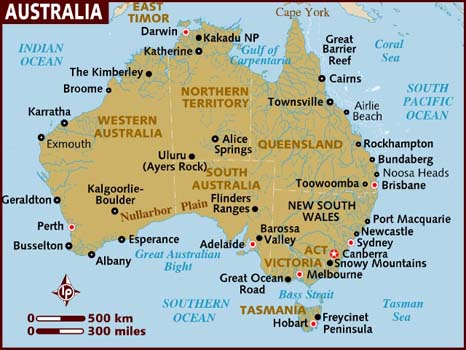Australia’s two major political parties are locked in a tight contest with over one-third of votes counted in the national election on Saturday, running counter to pre-election opinion polls that had predicted a change in government.
According to Australian Electoral Commission data, early counting showed a small swing to the governing Liberal-led conservative coalition, although the trend is not uniform and counting on the country’s west coast has only just begun.
Media election analysts suggested the most likely outcomes were that the government might eke out a victory or be best positioned to form a minority government.
The early results contrast with pre-election polls, which had predicted centre-left Labour would win, and mean a winner may not be known on Saturday.
Betting markets, which had tagged Labour as a certain winner before Election Day, have swung violently to now back the coalition to form a government.
“I thought I was coming to a wake, to be quite honest with you,” Liberal supporter Greg Napper told Reuters at Sydney’s Wentworth Hotel, where the government holds its official election night function.
According to him, this is a party and the results are encouraging.
According to AEC figures, Prime Minister Scott Morrison’s coalition has taken a strong lead in several marginal seats in the state of Queensland, blocking one of Labour’s strongest paths to victory.
Similar trends are occurring on city fringes, in the areas where demographics closest resemble America’s Rust Belt.
The early results are more mixed nearer to the heavily populated cities of Sydney and Melbourne.
The election campaign sparked several high-profile local battles, including attempts to remove Peter Dutton, a senior lawmaker, who has championed Australia’s controversial policy of detaining asylum seekers in offshore centres.
According to media analysts, although Dutton has retained his Queensland seat, former conservative Prime Minister Tony Abbott conceded on Saturday that he had lost his Sydney beaches seat of Warringah to high-profile independent Zali Steggall.
“So, of course, it’s disappointing for us here in Warringah, but what matters is what’s best for the country. And what’s best for the country is not so much who wins or loses Warringah, but who forms, or does not form, a government in Canberra,” Abbott told supporters in a concession speech.
The major parties are vying for a majority share of the 151 lower house seats to form a government.
There are also 40 of 76 Senate spots contested in the election, the outcome of which will determine how difficult it will be for the next government to enact policy.
“At this stage, it is very hard to see anything other than the coalition staying in government, but we don’t know whether that is a majority or minority government. We can’t see Labor forming government on the numbers at the moment,” Antony Green, election analyst at the Australian Broadcasting Association, said.
Reuters/NAN.

